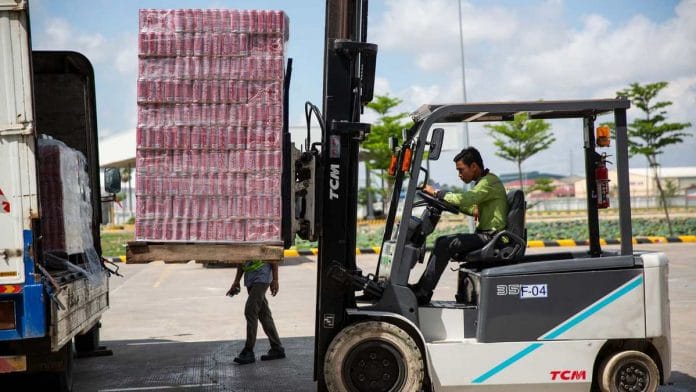Zurich/Singapore: The global economy flashed louder warning signs on Tuesday as a wave of data showed manufacturing stuck in a slump, exports falling and sentiment sliding.
Industry executives from Japan and Russia to Germany and Italy complained of contracting business, while the specter of deflation resurfaced as South Korea, a bellwether for international trade, reported a drop in consumer prices. The Reserve Bank of Australia cut its interest rate to a record low and said it may ease further.
Although a measure of Chinese manufacturing improved, the overall tone was of the world economy failing to rebound from the slowdown that has plagued it for the whole of this year amid mounting trade tensions and Brexit. That leaves the U.S. and China under pressure to resolve their differences as well central bankers and governments to find ways to support demand.
“There can be few precedents since the 1930s of global growth prospects being affected so significantly by trade policy disruptions,” Fitch Chief Economist Brian Coulton said.
UBS Group AG economists reckon global growth is tracking just 2.3 per cent at the moment, almost a percentage point less than the start of the third quarter. Danske Bank economists are warning there is a 30 per cent chance of a global recession in the next two years.
While global trade tensions are part of the story, there’s also industry specific issues — autos in Germany, semiconductors in South Korea — adding to the hurdles.
German car-parts giant Continental AG last month laid out a sweeping restructuring plan that could affect as many as 20,000 jobs worldwide. Japan’s Kawasaki Heavy Industries cut its forecasts, citing sales to chipmakers.
Central banks around the world are fighting the slowdown with new interest-rate cuts and monetary stimulus. But they are also ramping up calls on governments to jump in too with fiscal measures, saying they can’t do all the heavy lifting.
In the meantime, global bond investors are betting against a meaningful inflation pickup. Even with sovereign yields below zero, they are still piling into government debt, and so-called deflation trades are on the rise. Germany’s 10-year borrowing costs are at minus 0.5 per cent.
The latest Purchasing Managers Indexes may reinforce those views. German manufacturers cut prices in September by the most in more than three years. In Japan, where manufacturing sentiment is declining, factories lowered selling prices for a fourth straight month.
That’s worrying for central bankers in a world where inflation is already low and well short of targets. Consumer-price growth in Germany and the euro area slipped below 1 per cent in September for the first time since 2016. For the latter, that’s far short of the European Central Bank’s goal.
In the U.K., the PMI reading improved, but still remained below the 50 level that divides expansion from contraction.
China’s numbers were mixed. The Caixin/IHS Markit measure to 51.4 in September from 50.4 in August. The nation’s official PMI was less upbeat — edging up to 49.8 from 49.5.
Parts of the global economy still show resilience. Services is growing, and falling unemployment is supporting consumer spending. U.S.-China trade negotiations remain a critical risk for the outlook, with a Chinese delegation set to visit Washington for further talks this month aimed at hammering out a deal.
“We would hear a great sigh of relief form central banks around the world if the trade situation were to be somewhat resolved,” Holger Schmieding, Berenberg chief economist, said on Bloomberg Television on Monday. “I’d be positively surprised if we had a lasting resolution within the next few months. Both sides want a deal, but they still seem far apart.” -Bloomberg
Also read: Automakers see marginal growth in September sales — but year-on-year fall continues






